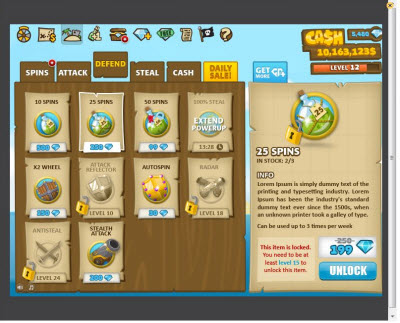Bees and Pollen is debuting a targeted marketing tool today called The HoneyLizer to help game companies get more money out of their social gamers.
The HoneyLizer, which is being unveiled at the DEMO Fall 2011 conference, enables developers to target gamers with promotions to convert them into paying users.
This kind of conversion isn’t easy to do in free-to-play social games, where a user plays for free and, at the player’s own choice, pays real money for virtual goods. But getting more players to pay can make a social game immensely more profitable.
Typically, only 1 to 5 percent of Facebook players will purchase virtual goods. If Bees and Pollen can change that so 2 to 10 percent of players buy something, then it can double the profits and revenues for the same number of users. Bees and Pollen tries to increase gamer retention, improve virality of a game, and improve overall monetization for any social application.
The Tel Aviv-based company tries to do this with real-time analytics. It uses complex math formulas to sort users into different groups with similar characteristics. Then it directs those users to the most appropriate pages. It does this based on the user’s own social data, not on the user’s actual history. Each user gets a slightly different version of the promotional page.
This idea is not unique. Amazon.com does this exceedingly well; Tapjoy does this kind of targeting for mobile games; Swrve just announced a similar service for real-time targeting based on user behavior; and Kontagent specializes in analytics for social and mobile games. But a gold mine awaits the company that can do this the best. Many game companies try to optimize using simple A/B testing, like testing whether users like a page in pink or in blue and then switching it to blue when the answer becomes evident. The Honeylizer serves each user a different message based on his or her unique social identity.
The Honeylizer can also be applied to app stores, e-commerce, marketing campaigns and corporate training. The Honeylizer does automatic analysis and it makes recommendations in real time. The system works well for both existing users and new users, the company says. On Facebook games, about 50 percent of first-time users never come back to the app.
The company was founded in 2007 and has five employees. Bees and Pollen has raised less than $500,000 from friends, family and some angels. Yaron Cohen, chief executive and co-founder, and co-founder Udi Barone tried to create a social network a few years ago to help small businesses generate better word-of-mouth awareness. Then the company founded Bees and Pollen to identify social influencers on MySpace. Since then, it returned to Facebook and found that no one was really making use of all of the social data on users, such as their activities and interests. Instead, they were targeted with ads that just weren’t relevant. So the team focused on a way to turn social information into actionable knowledge.
Raf Keustermans, an independent consultant who works for European social game developers, said he was impressed with Bees and Pollen’s technology. In beta testing, the company said it saw 25 to 50 percent improvement in clickthrough rates.
Bees and Pollen is one of 80 companies chosen by VentureBeat to launch at the DEMO Fall 2011 event taking place this week in Silicon Valley. After our selection, the companies pay a fee to present. Our coverage of them remains objective.
VentureBeat's mission is to be a digital town square for technical decision-makers to gain knowledge about transformative enterprise technology and transact. Learn More

